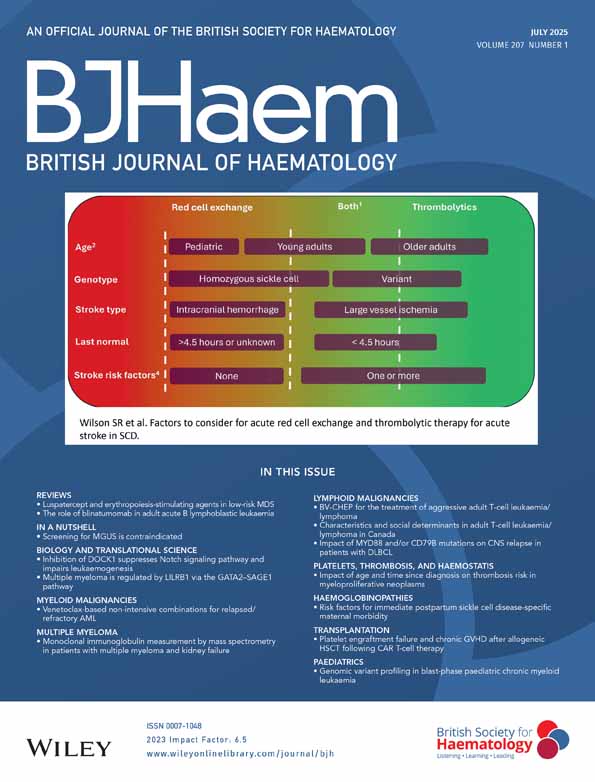Aberrant expression of caspase cascade regulatory genes in adult T-cell leukaemia: survivin is an important determinant for prognosis
Abstract
Derangement of either apoptosis or cell division is known to play an important role in tumorigenesis. Fas-mediated apoptosis on normal and leukaemic T cells is finely tuned by inhibitory proteins, such as FAP-1, FLIP and survivin, and defective caspase isoform which can attenuate the function of its intact caspase as a decoy molecule. However, complex involvement of such inhibitors in tumour biology relating to apoptotic pathology remains unclear in the neoplasms. We report the aberrant expression of FAP-1, FLIP and survivin mRNAs on leukaemic T cells from adult T-cell leukaemia (ATL) patients. Among these inhibitors, only survivin was aberrantly expressed in all ATL cases, but not in any normal peripheral blood mononuclear cells (PBMCs). Furthermore, survivin mRNA expression level was characteristic in each subtype of ATL and represented an important determinant for ATL prognosis. However, the apoptotic effector of casp-8, which is essential in Fas-mediated signal transduction, was dominant in defective casp-8 rather than intact casp-8 in ATL cells, suggesting a favourable biological situation for escape from apoptosis. Taken together, ATL cells probably possess many different regulatory mechanisms in order to attenuate Fas-mediated signalling and subsequently expand their populations under escape from apoptosis. Among these inhibitors, survivin is a useful bio-marker to assess tumour biology and may be a potential new target for apoptosis-based selective therapy in neoplasms as the expression is a general feature of neoplasia, but not normal tissues.




